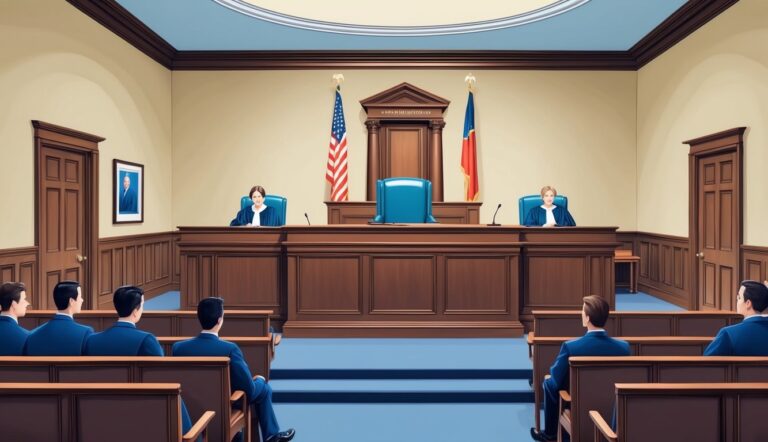Basics of Legal Proceedings
Legal proceedings encompass various formal processes in the judicial system aimed at resolving disputes.
Understanding these proceedings is essential, especially when navigating issues related to insurance claims, lawsuits, or any potential legal action.
Understanding Court Systems
Court systems vary widely, structured primarily to address civil and criminal matters.
In your jurisdiction, courts are typically divided into lower courts and appellate courts.
Lower courts handle initial cases, including minor civil disputes or misdemeanor crimes.
Meanwhile, appellate courts review decisions made by lower courts, ensuring they followed legal procedures.
Familiarity with this structure is crucial, as it influences how cases are presented and resolved.
The jurisdiction of a court determines the types of cases it can hear.
For instance, small claims courts focus on minor financial disputes, while higher courts manage more significant matters, including tort claims related to insurance.
Different Types of Legal Proceedings
Legal proceedings can be categorized into civil and criminal cases.
In civil proceedings, one party (the plaintiff) initiates a lawsuit seeking compensation for damages or enforcement of rights.
Your involvement may include filing a claim against an insurance company following a denial of coverage.
Criminal proceedings, on the other hand, are initiated by the government against individuals accused of violating laws.
Penalties in these cases can include fines, community service, or imprisonment.
Understanding the distinctions between these types helps you navigate potential legal challenges effectively.
Additionally, alternative dispute resolution (ADR) methods, such as mediation and arbitration, are available.
These routes can be less formal and may offer quicker resolutions than traditional court proceedings, which can benefit those seeking swift settlements.
Key Players in Legal Proceedings
Several key players are involved in legal proceedings.
The judge oversees the courtroom, ensuring that all parties adhere to legal procedures and standards.
Your interaction with the judge can be critical in civil cases, affecting decisions such as motions or evidence admissibility.
The plaintiff is the party bringing the lawsuit, while the defendant is the individual or entity being accused.
Both parties typically have attorneys representing their interests, navigating the complexities of the legal system.
Other significant figures can include witnesses, who provide critical information, and jurors, who may be responsible for determining the outcome in jury trials.
Each player influences the proceeding’s dynamics and the potential resolution of the case.
Overview of the Legal Process
The legal process typically begins with the filing of a complaint or charge.
This document outlines the issues and sets the stage for the proceeding.
Depending on the nature of the case—be it civil or criminal—different procedures will follow.
In civil cases, pre-trial stages involve pleadings, discovery, and potentially settlement discussions.
You may be required to gather evidence to support your claim or defense.
Trials can be either jury-based or decided by a judge, depending on the case.
In criminal cases, the process includes arraignment, where charges are formally presented, followed by pre-trial motions that may affect the trial’s outcome.
Understanding each stage is crucial to navigating the complexities of your specific legal situation, particularly if it intersects with insurance-related issues.
Pre-Trial Activities
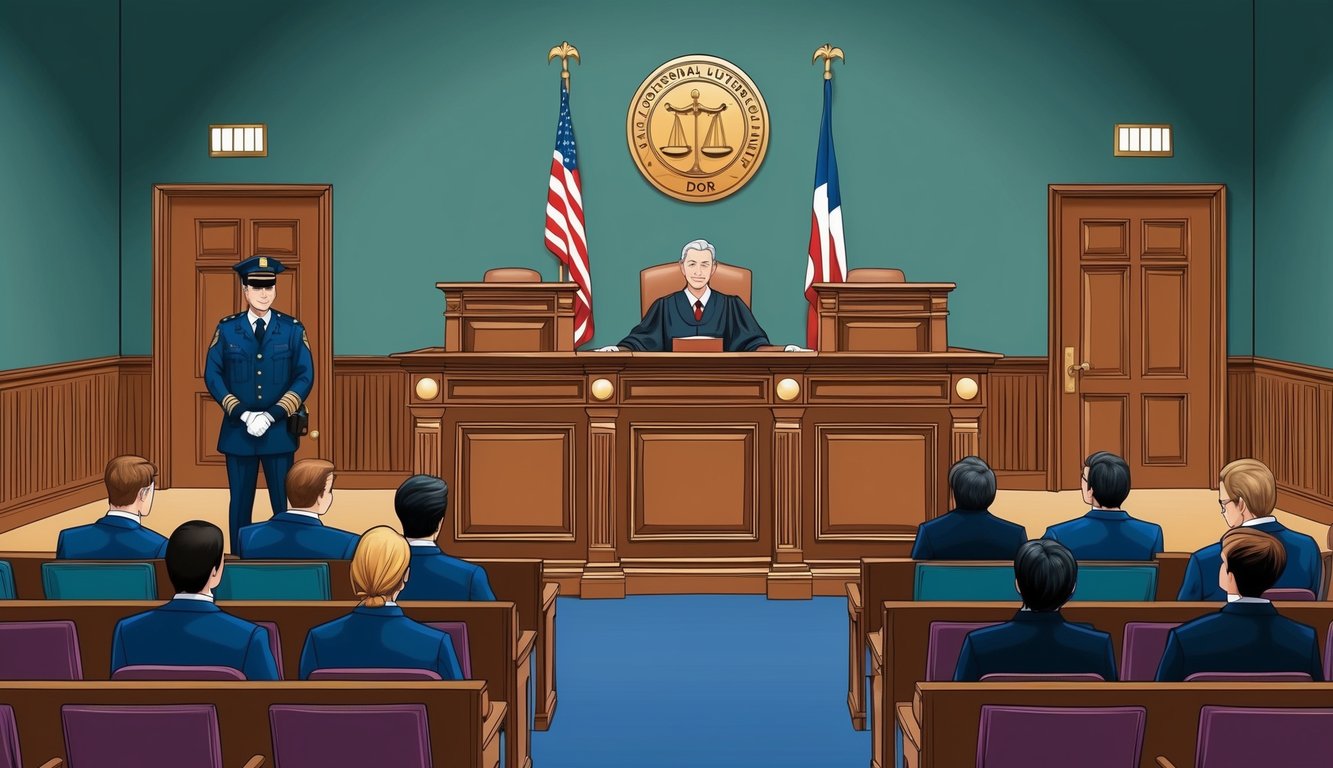
This phase in legal proceedings is crucial for establishing the framework of the case.
It encompasses crucial steps such as filing a complaint, serving legal documents, engaging in discovery, and conducting pre-trial motions and hearings.
Filing a Complaint
To initiate a legal action, you must file a complaint, which outlines your grievances and the basis for the lawsuit.
This document includes key details such as the parties involved, factual allegations, and the specific relief sought.
The complaint serves as the foundation for your case.
Ensuring its accuracy and clarity is essential.
You may need to prepare multiple copies to submit to the court and to serve to the opposing party.
Once filed, the complaint sets the legal proceeding in motion.
It is typically accompanied by a filing fee, which varies by jurisdiction.
Service of Process
After filing your complaint, the next critical step is the service of process.
This involves delivering legal documents to the defendant, informing them of the lawsuit.
Proper service ensures that the defendant is aware of the action against them and has an opportunity to respond.
Service can be executed in various ways, such as in-person delivery or certified mail.
In some cases, a process server may be employed to fulfill this task.
Failing to serve the defendant properly can lead to delays or even dismissal of your case.
Therefore, meticulous compliance with service laws is necessary.
The Discovery Phase
The discovery phase involves the exchange of information between parties to prepare for trial.
This process allows each side to gather evidence, review documents, and identify witnesses.
Common discovery tools include interrogatories, requests for production, and depositions.
Each tool serves to uncover relevant facts and evidence that may be pivotal to your case.
It is essential to comply with discovery requests timely.
Failure to do so may result in legal sanctions or an unfavorable outcome in your proceeding.
Pre-Trial Motions and Hearings
Pre-trial motions serve as formal requests to the court, often addressing specific issues before the trial begins.
These can include motions to dismiss, motions for summary judgment, or motions to suppress evidence.
Pre-trial hearings provide a forum to address these motions and clarify any procedural matters.
You may also file a subpoena for witness testimony or the production of documents during this time.
These motions and hearings are vital in shaping the trial’s landscape and can significantly influence the proceedings.
Preparing thoroughly for these stages is essential to ensure that your arguments are presented effectively.
The Trial Process
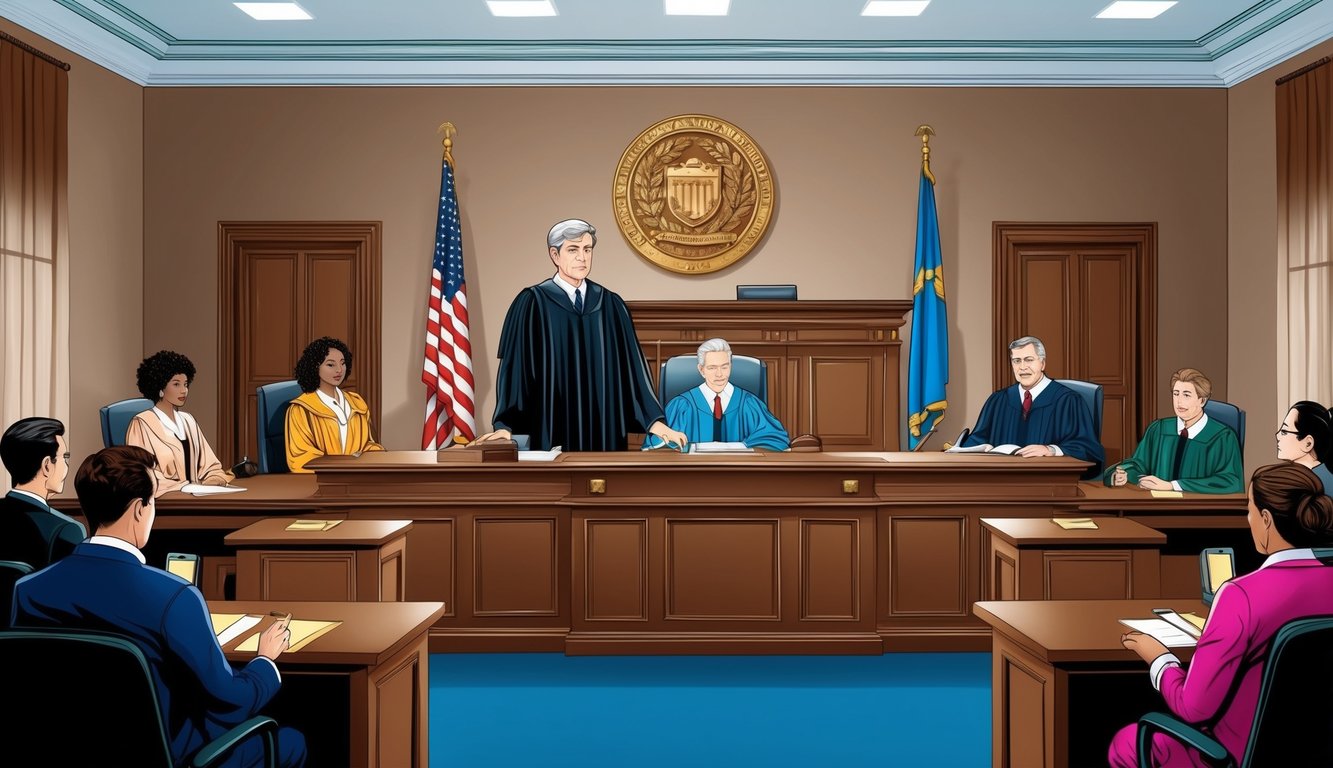
The trial process is a crucial component of legal proceedings, particularly in criminal trials.
It involves the systematic presentation of evidence, witness testimony, and the jury’s final verdict.
Understanding these elements helps you grasp how justice is served in the courtroom.
Presenting Evidence
In a trial, presenting evidence is essential to support your case.
Evidence can be categorized as either direct or circumstantial.
- Direct evidence: Clearly establishes a fact, such as eyewitness testimony.
- Circumstantial evidence: Requires inference, suggesting a fact indirectly.
The burden of proof lies with the prosecution in criminal cases, which must demonstrate the defendant’s guilt beyond a reasonable doubt.
In civil trials, the standard shifts to preponderance of the evidence, meaning the evidence must show that something is more likely true than not.
This distinction is critical for you to understand, as it influences trial strategies and potential outcomes.
Witness Testimony and Cross-Examination
Witness testimony plays a pivotal role in a trial.
Witnesses can provide firsthand accounts that help establish facts.
You may hear testimony from various individuals, including:
- Eyewitnesses
- Expert witnesses
- Character witnesses
Each type serves a unique purpose in influencing the jury’s perception.
After direct examination by the party that called them, witnesses face cross-examination.
This involves questioning by the opposing party to challenge their credibility and the reliability of their statements.
Cross-examination is a strategic part of the trial, as it seeks to reveal inconsistencies or biases that may weaken the testimony.
Jury Deliberation and Verdict
After presentation of the evidence and witness testimonies, the jury moves to deliberation.
During this phase, jurors discuss the case in detail to reach a verdict.
It’s crucial that jurors consider all evidence impartially.
The jury’s task is to evaluate whether the prosecution has met its burden of proof.
Once deliberations conclude, the jury delivers a verdict, which can be:
- Guilty
- Not guilty
- Hung jury (no consensus)
The verdict significantly impacts the outcome for defendants and can have broader implications within the legal system, including potential appeals.
Post-Trial Considerations
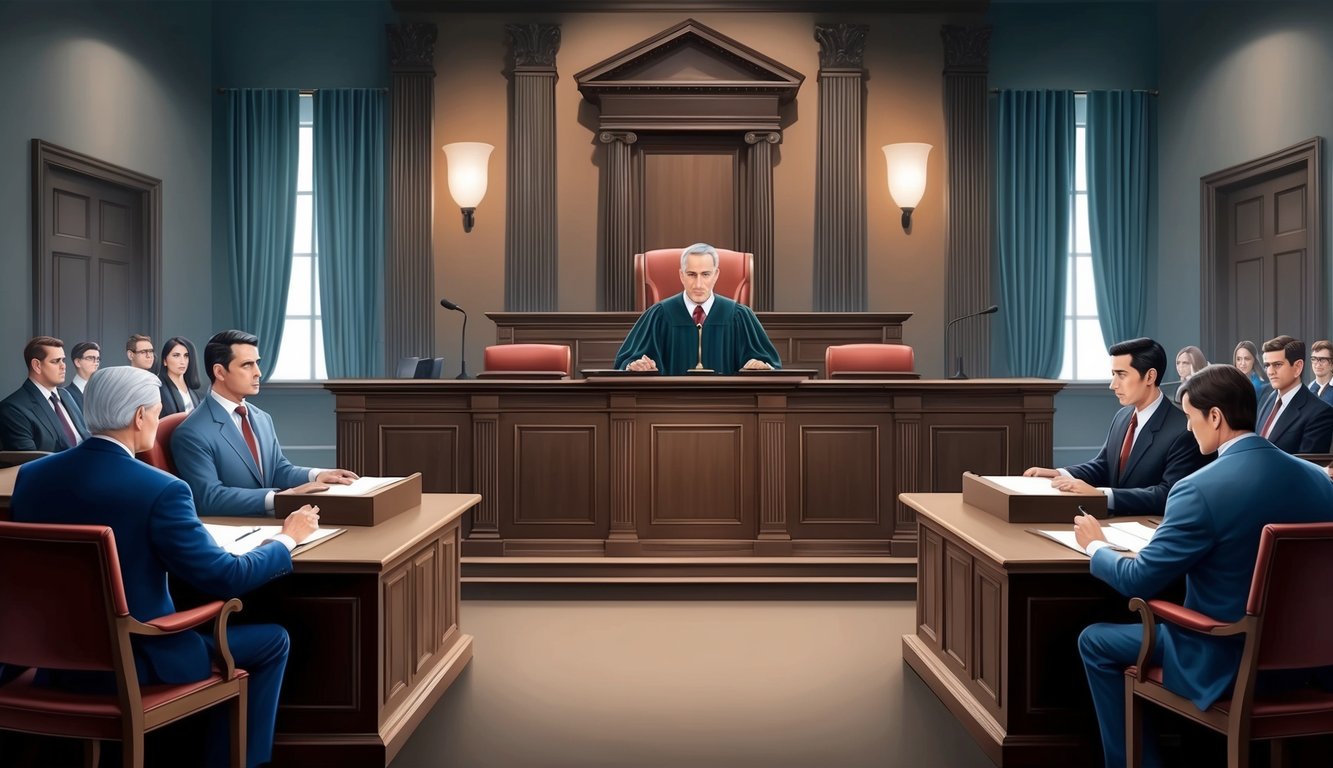
After a trial concludes, you may face several important considerations that can significantly affect the outcome of your case.
These aspects primarily involve seeking redress through appeals, enforcing judgments, and exploring civil remedies.
Seeking Redress Through Appeals
If you believe that errors occurred during the trial, consider filing an appeal.
An appeal is a formal request to a higher court, known as an appellate tribunal, to review the trial court’s decision.
This process requires a compelling argument that legal mistakes impacted the verdict or sentencing.
Grounds for appeal can include procedural errors, misinterpretation of the law, or insufficient evidence supporting the verdict.
You must follow strict deadlines for filing, so it’s crucial to act promptly.
Winning an appeal may lead to a new trial or a change in judgment.
Understanding this mechanism is vital for obtaining a legal remedy that reflects your interests.
Enforcement of Judgments
Once a judgment is obtained, the next step is ensuring its enforcement.
This often involves taking additional legal actions to collect compensation or fulfill the terms set by the court.
In cases where the losing party fails to comply, you may initiate enforcement proceedings.
This can include garnishing wages, seizing assets, or placing liens on property.
Consulting with legal professionals experienced in enforcement can help navigate this complex area.
Understanding your rights in enforcing a judgment helps you effectively assert your claim and attain the compensation you deserve.
Civil Remedies and Compensations
In addition to pursuing appeals, you may have options for civil remedies, particularly if your case involves insurance claims or disputes.
These remedies can include settlements or compensation claims, prompting parties to negotiate favorable terms outside of court.
For instance, you might receive compensation for damages incurred due to negligence or breach of contract.
Seeking settlement negotiations directly can sometimes yield quicker and more satisfactory outcomes than a lengthy trial.
Document all claims and communications during this process, as they can serve as crucial evidence in securing a favorable resolution.
Understanding these avenues can empower you to protect your rights and seek the compensation you rightly deserve.
Special Legal Proceedings
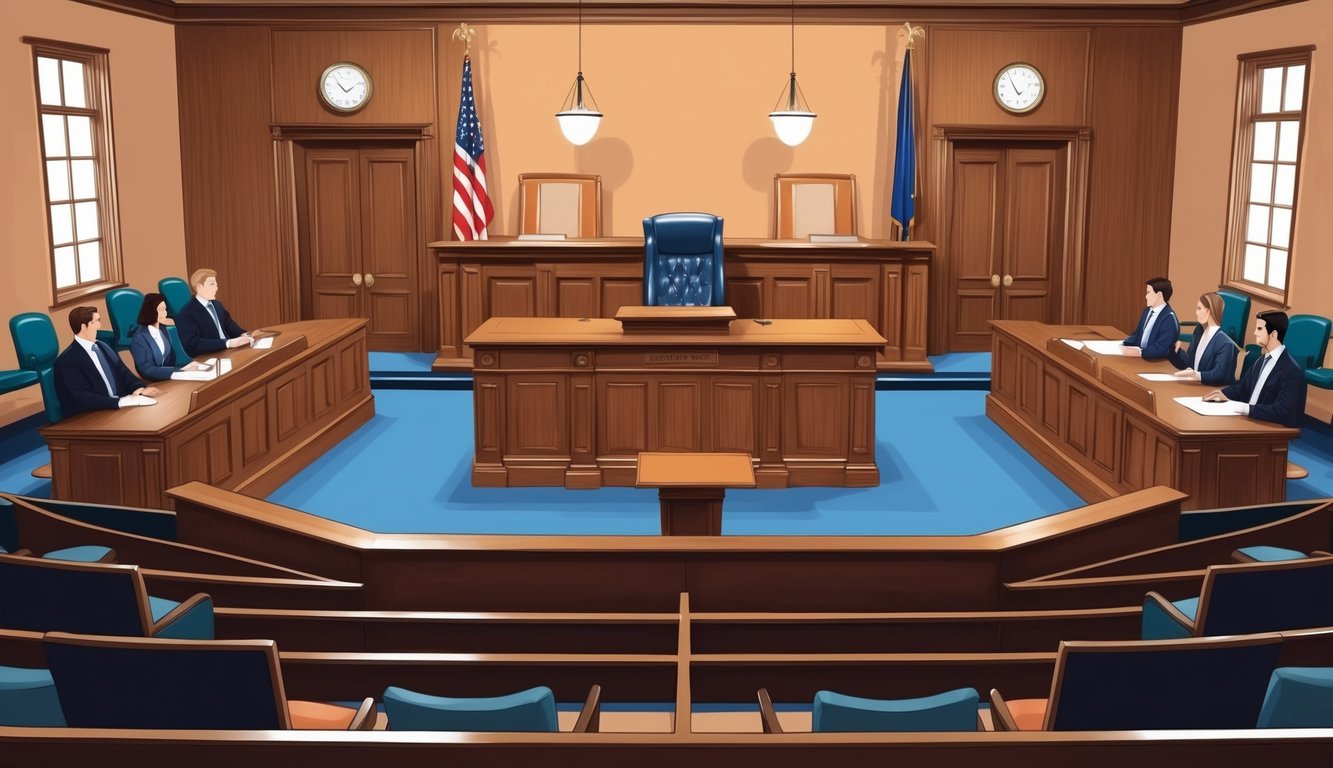
Special legal proceedings are distinct methods utilized to address specific legal matters efficiently.
These processes often offer a more streamlined approach than traditional litigation, particularly in areas involving administrative issues, arbitration, and family law.
Administrative Hearings
Administrative hearings involve disputes that require resolution within government agencies.
You may find yourself in an administrative hearing if you are contesting actions taken by a regulatory body.
These hearings are less formal than court sessions but still require adherence to rules of procedure.
The outcome can significantly affect your legal standing, especially concerning claims related to licenses or benefits.
A central feature of administrative hearings is the presentation of evidence and witness testimony.
An administrator or a designated official, often referred to as an administrative law judge (ALJ), presides over these proceedings.
The ALJ evaluates the evidence and issues a decision based on the relevant laws and regulations.
Arbitration and Mediation
Arbitration and mediation are alternative dispute resolution methods that help resolve conflicts without going to court.
In arbitration, an arbitrator reviews the case and makes a binding decision.
If you enter arbitration, you generally agree to abide by the outcome.
This can expedite resolution and reduce costs compared to traditional litigation.
Mediation, on the other hand, involves a neutral mediator who facilitates discussion between parties.
The goal is to help you reach a voluntary settlement.
This process is often less formal and may preserve relationships that could be damaged through adversarial litigation.
Both methods can be particularly effective in insurance disputes over claims and coverages.
Family Law Matters
In family law, special proceedings may include issues such as divorce, child custody, or maintenance.
These matters often require sensitivity and a keen understanding of relevant laws.
You can engage in special proceedings for divorce to address division of assets, alimony, and child support.
Such proceedings often involve factors like income levels, health, and custody arrangements.
Special hearings in family law can provide a focused environment to address these issues quickly.
The legal landscape can vary; therefore, consulting with legal professionals can help navigate the complexities of your specific situation.
Frequently Asked Questions
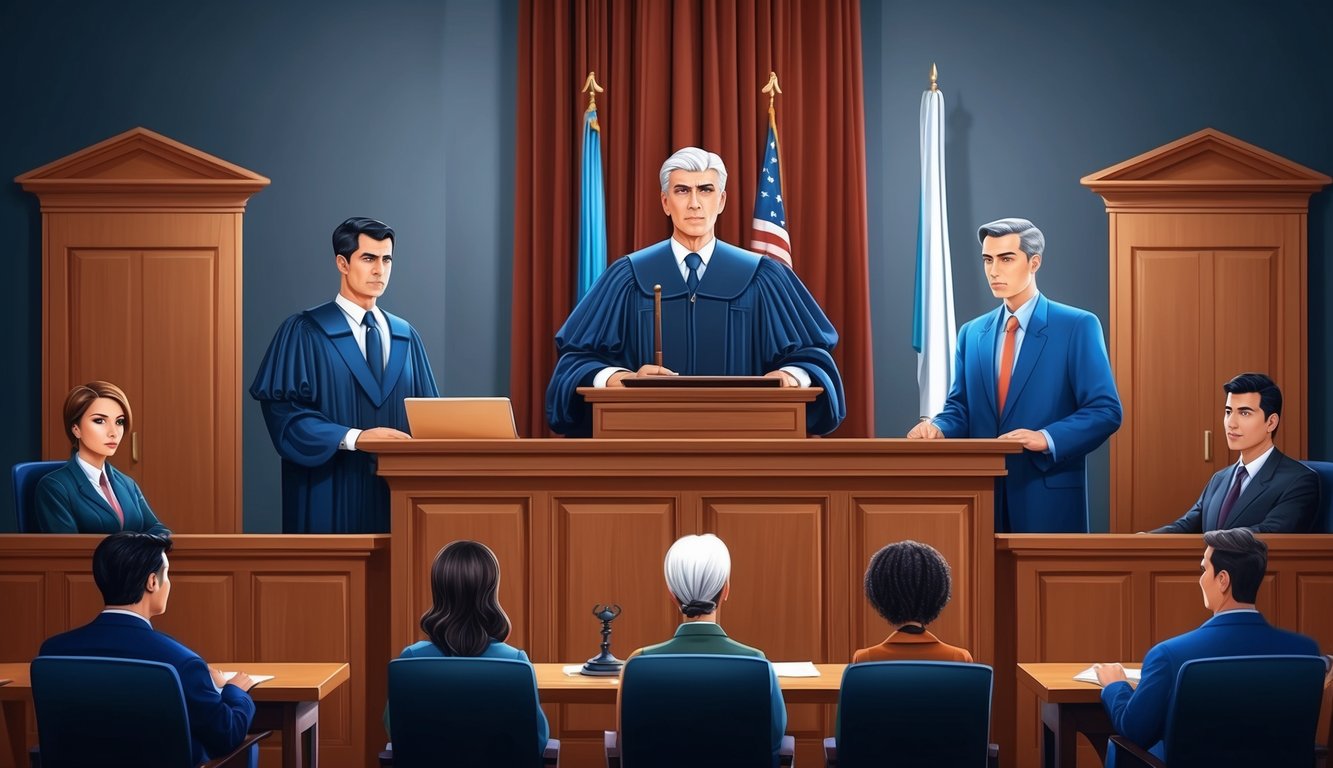
Understanding legal proceedings is essential, especially in contexts like the insurance industry.
The following sections will address common queries about the types, initiation, stages, constitutional aspects, and definitions related to legal proceedings.
What are the different types of legal proceedings?
Legal proceedings can be categorized into civil and criminal proceedings.
Civil proceedings often involve disputes between individuals or organizations, while criminal proceedings are initiated by the government against an individual accused of breaking the law.
How is a legal proceeding initiated?
A legal proceeding typically begins when an individual files a complaint or petition with the court.
This document outlines the issue at hand and requests legal relief.
In the insurance industry, this might involve claims disputes or coverage issues.
What are the various stages involved in court proceedings?
Court proceedings generally include several stages: filing a complaint, pre-trial motions, discovery, trial, and potentially appeals.
Each stage serves a specific purpose in ensuring that both parties present their cases adequately and the court can reach a fair decision.
Which constitutional amendments pertain to legal proceedings?
Several constitutional amendments are relevant, including the Fourth Amendment, which protects against unreasonable searches and seizures, and the Sixth Amendment, ensuring the right to a fair trial.
These protections are significant for both individuals and entities involved in legal disputes.
What distinguishes an action from a proceeding in legal terms?
An action generally refers to a specific case brought before a court, while a proceeding encompasses any legal process undertaken in the judicial system.
Understanding this distinction is crucial for navigating legal matters effectively, particularly in insurance claims.
What is the legal definition of ‘proceedings’?
In legal contexts, ‘proceedings’ refer to the sequence of steps taken in enforcing or defending a legal right.
This definition includes everything from filing documents to the actual trial and any appeals that may follow.
This emphasizes the structured nature of the judicial process.


